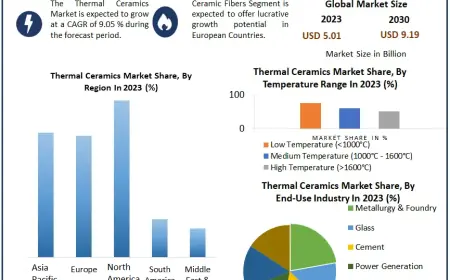The Future of Debt Collection: How Automation is Changing the Industry
This article explores the trends shaping the future of debt collection and how automation is revolutionizing the industry.
The landscape of debt collection is undergoing a significant transformation, spurred on by advancements in technology and automation. Debt collection agencies, traditionally seen as aggressive and often outdated in their processes, are now embracing innovative solutions to improve efficiency, enhance customer service, and ultimately increase their recovery rates. This article explores the trends shaping the future of debt collection and how automation is revolutionizing the industry.

Debt Collection Agency
A debt collection agency is a firm that specializes in recovering unpaid debts on behalf of creditors. These agencies employ various strategies to reach out to debtors, including phone calls, letters, and increasingly, digital communication channels. Historically, the debt collection process has been viewed through a negative lens, associated with harassment and unethical practices. However, the rise of automation is prompting a paradigm shift in the industry.
The Role of Automation in Debt Collection
Automation is not just a buzzword; it is a crucial component in modernizing the debt collection process. It encompasses a range of technologies, including artificial intelligence (AI), machine learning, and automated communication tools. Here are several ways that automation is reshaping the way debt collection agencies operate:
Enhanced Data Management
Efficient data management is the backbone of effective debt collection. Automation allows agencies to gather, analyze, and manage large volumes of data seamlessly. By leveraging customer data analytics, agencies can segment debtors based on various factors such as payment history, demographic information, and behavioral patterns. This enables more targeted outreach strategies, reducing the likelihood of wasted resources.
Improved Communication Channels
Debt collection agencies are increasingly utilizing automated communication platforms, such as chatbots, automated emails, and SMS services. These tools facilitate timely and efficient communication with debtors, allowing agencies to send reminders, payment plans, and other crucial information. Automated systems can also manage responses, ensuring that clients receive assistance promptly. The result is a more streamlined communication process that respects the consumer's preferences.
Predictive Analytics
Predictive analytics is another powerful application of automation within the debt collection sphere. By analyzing historical data and identifying trends, predictive analytics enables agencies to forecast which accounts are most likely to yield successful recovery rates. This insight allows agencies to focus their efforts on accounts that are worth pursuing, optimizing their resources and maximizing recovery potential.
Customer-Centric Debt Collection
In recent years, there has been a significant shift towards customer-centric debt collection practices. Traditional methods that emphasized pressure tactics and intimidation are being replaced by more empathetic approaches. Automation plays a critical role in this transition by enabling agencies to tailor their interactions based on previous customer behaviors.
For instance, an automated system can highlight a debtor’s past payment attempts or indicate when they are most likely to respond. This information is invaluable in creating a more personalized experience that prioritizes understanding and collaboration. Additionally, offering multiple payment options through automated portals can make it easier for debtors to fulfill their obligations, further improving recovery rates.
Compliance and Regulation
The debt collection industry is governed by various laws and regulations designed to protect consumers from unethical practices. The Fair Debt Collection Practices Act (FDCPA) in the United States, for instance, sets clear guidelines on how debt collectors must operate. As regulation becomes increasingly stringent, automation can play a vital role in ensuring compliance.
Automated systems can be programmed to follow compliance guidelines, minimizing the risk of human error that can lead to violations. Furthermore, contemporary debt collection agencies can utilize AI tools that constantly monitor communications and interactions to ensure they adhere to regulatory standards. This proactive approach not only enhances the agency's reputation but also instills trust among debtors.
The Cost-Benefit Analysis
While the integration of automation in debt collection can require significant investment upfront, the long-term benefits often outweigh the costs. Debt collection agencies that embrace automation typically see improved efficiency, reduced operational costs, and higher recovery rates.
For instance, automated processes can decrease the need for extensive manual labor, allowing agencies to allocate resources more strategically. Additionally, as communication becomes more efficient, the time spent per account decreases, enabling agencies to focus on a larger volume of cases.
Challenges and Considerations
Despite the numerous benefits automation brings to debt collection agencies, it is essential to understand the potential challenges involved. Technology implementation requires careful planning and execution. Issues such as software integration, data security, and system reliability must all be addressed to ensure seamless operation.
Furthermore, while automation can enhance the efficiency of communication, agencies must strike a balance between automation and human interaction. There are instances where sensitive matters may require a personal touch that automated systems alone cannot provide. Therefore, it is essential for agencies to know when to employ automation and when to engage their human resources effectively.
Looking to the Future
The future of debt collection is undoubtedly intertwined with the advancement of technology and automation. As tools and capabilities evolve, debt collection agencies must adapt to stay competitive. The focus will likely shift towards creating more integrated and personalized experiences for debtors while maintaining compliance and ethical standards.
Additionally, consumer expectations are rapidly changing. Today's debtors are accustomed to high levels of service and convenience in their interactions with businesses. As such, debt collection agencies that embrace automation and prioritize customer experience will likely thrive in this new landscape.
In conclusion, automation is an invaluable asset that offers debt collection agencies the opportunity to evolve from traditional practices into a more efficient, compliant, and customer-centric industry. By fostering innovation, these agencies can improve their operations, enhance debtor relations, and ultimately achieve better recovery outcomes. The future of debt collection is bright, driven by automation and a commitment to ethical practices.
What's Your Reaction?
 Like
0
Like
0
 Dislike
0
Dislike
0
 Love
0
Love
0
 Funny
0
Funny
0
 Angry
0
Angry
0
 Sad
0
Sad
0
 Wow
0
Wow
0















































